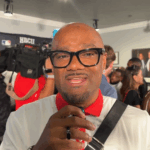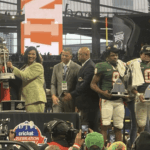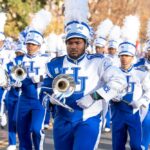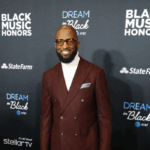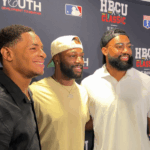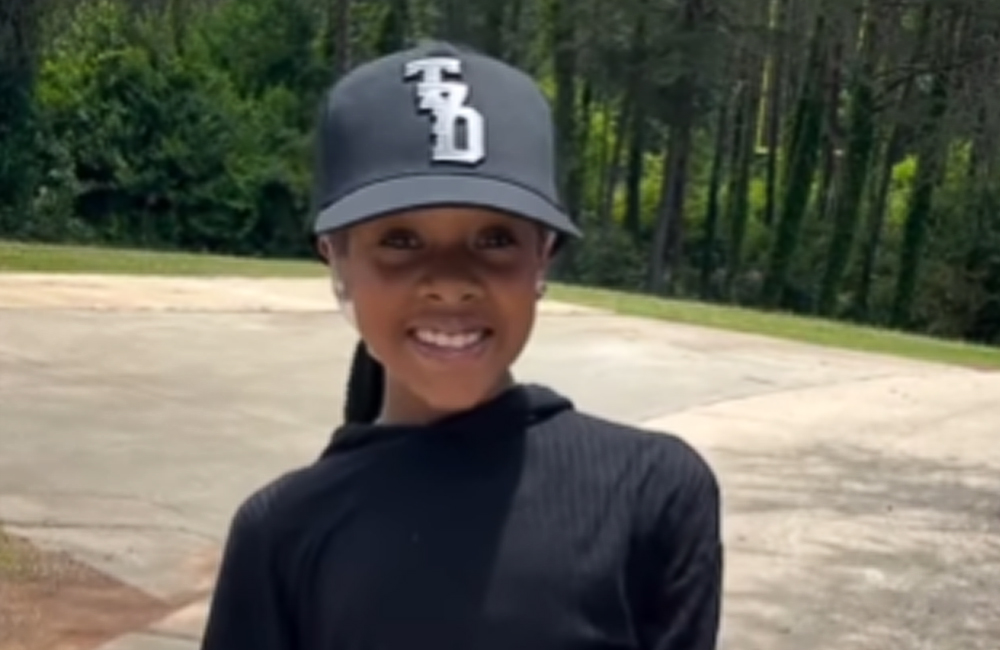
Young dancer channels family heritage and campus culture through powerful artistic performance
In an era where social media often dilutes cultural authenticity, 11-year-old Harley J has emerged as an unexpected guardian of tradition. Her recent dance video celebrating Historically Black Colleges and Universities has resonated with viewers nationwide, proving that genuine artistry can transcend age barriers while honoring deep-rooted educational legacies.
The performance originated from a creative prompt by Triple 7 Dance Studio, challenging young dancers to express their inspirations through movement. For Harley, the response was instinctive, drawing from her family’s intimate relationship with HBCU culture and the distinctive energy that defines these academic institutions.
Mother’s legacy shapes artistic vision
Harley’s connection to HBCU traditions runs deeper than admiration. Her mother, a former Hampton University T Force dancer, passed down more than choreographic knowledge — she transmitted cultural stewardship. This heritage provided Harley with authentic insights into what these institutions represent within African American communities across the nation.
The familial connection permeates every moment of Harley’s tribute, from her opening declaration about dance motivations to the nuanced details throughout her performance. Her artistic expression reflects genuine appreciation rooted in lived experience rather than surface-level interpretation.
This intergenerational transmission illustrates how cultural practices endure and evolve. Harley’s tribute functions simultaneously as celebration and continuation of traditions that have defined HBCU communities for decades.
Campus characters come alive through movement
Harley’s performance demonstrates remarkable versatility through characterizations that authentically capture HBCU football game atmospheres. Each persona she embodies reflects careful observation and profound appreciation for the diverse personalities that create homecoming magic.
Her portrayal of marching band members pays homage to the musical foundation of game day excitement. These sequences honor the extraordinary talent and pride that HBCU bands contribute to every performance, maintaining traditions that have influenced American music across generations. The precision and enthusiasm she brings to these moments reflect genuine understanding of their cultural weight.
The majorette segment proves particularly poignant, as Harley wears her mother’s authentic uniform while executing classic routines that resonate with alumni nationwide. This moment creates tangible connections between past and present, demonstrating how HBCU traditions survive through family networks and personal relationships.
Athletic excellence meets cultural expression
Football players feature prominently in Harley’s tribute, capturing the competitive spirit and athletic distinction that HBCUs have contributed to America’s sports landscape. Her characterizations highlight the determination and skill these institutions have cultivated in student-athletes for over a century, acknowledging their continued contributions to professional athletics.
The spirited fans she portrays embody the joy and community bonds that define HBCU culture. These characters illustrate the unique fellowship found at historically black institutions, where education, athletics and social connection merge to create enduring relationships that extend well beyond graduation.
Throughout her performance, Harley incorporates meaningful signage that reinforces her message. Signs declaring that dance represents both art and enjoyment emphasize the creative and celebratory aspects of her craft while connecting to broader themes of self-expression and cultural appreciation.
Technical foundation enables authentic representation
Harley’s extensive training encompasses multiple dance disciplines, including ballet, tap, jazz, hip-hop, modern and contemporary forms. This diverse foundation enables authentic representation of various movement traditions found within HBCU culture, from classical techniques to contemporary urban expressions that reflect evolving artistic landscapes.
Her artistic philosophy reveals the motivation behind her performances. She explains that dance enables self-expression while bringing tremendous joy to her life, emphasizing that dance represents part of her history and something she actively chooses to celebrate. This perspective positions her art as both personal fulfillment and cultural preservation.
This approach transforms entertainment into education and individual expression into community service, demonstrating how young artists can serve broader purposes while pursuing personal passions.
Viral response reflects cultural hunger
The overwhelmingly positive reception to Harley’s video demonstrates a widespread appetite for authentic HBCU representation in mainstream media. Viewers have praised both her technical proficiency and genuine understanding of the traditions she portrays, recognizing authenticity that distinguishes her work from superficial imitations.
Community responses celebrating her performance express excitement about her representing HBCU culture’s future. Supporters praise her exceptional talent and natural ability, noting strong similarities to her mother’s gifts. These reactions demonstrate how her work resonates with HBCU alumni and supporters who distinguish genuine tribute from performative appreciation.
The video’s participation in a contest offering complimentary dance classes adds meaningful context, highlighting how community support directly impacts young artists’ development and access to training opportunities that might otherwise remain inaccessible.
Modern innovation preserves cultural heritage
Harley’s tribute transcends entertainment, serving as cultural documentation that preserves HBCU traditions for future generations. Her work bridges generational divides by presenting historical customs through contemporary artistic expression, making traditions accessible to younger audiences who might not otherwise encounter them through conventional channels.
The performance demonstrates how individual artistic expression serves broader community purposes. By sharing her family’s connection to HBCU culture, Harley creates space for others to explore their own relationships to these institutions and their ongoing cultural significance within American society.
Her success illustrates the potential for young artists to function as cultural ambassadors, using platforms to educate, inspire and preserve important traditions. As she continues developing her skills and expanding her reach, Harley stands positioned to influence how HBCU culture is perceived and celebrated in popular culture.
This remarkable young dancer’s tribute serves as a powerful reminder that cultural traditions flourish when actively celebrated and shared. Through authentic portrayal of HBCU life, Harley ensures these vital institutions’ legacy continues inspiring new generations of artists, students and community members who will carry these traditions forward into the future.
Sort By
 Register for exclusive access to VIP events and more
Register for exclusive access to VIP events and more
Sign up for periodic updates, special discounts, and more!



